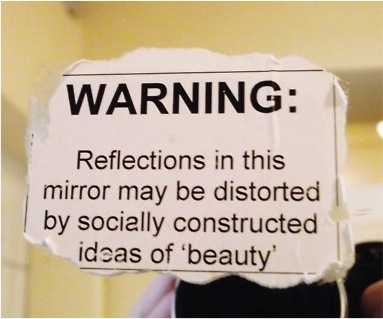-
Advocacy Theme
-
Tags
- Abortion
- Adoption
- Caregiving
- CEDAW
- Disability
- Domestic Violence
- Domestic Workers
- Harassment
- Healthcare
- Housing
- International/Regional Work
- Maintenance
- Media
- Migrant Spouses
- Migrant Workers
- Muslim Law
- National budget
- Parental Leave
- Parenthood
- Polygamy
- Population
- Race and religion
- Sexual Violence
- Sexuality Education
- Single Parents
- Social Support
- Sterilisation
- Women's Charter
This New Year, resolve to support self-acceptance
January 7th, 2014 | Children and Young People, Letters and op-eds, News
By Jolene Tan, Programmes and Communications Senior Manager, AWARE
For many, January is a time for reinvention, and one of the most common aspirations expressed is weight loss. Many people, especially women, speak about “slimming down” as a high priority – even a duty.
 Some are motivated by health concerns, but others are, unfortunately, driven by an unrealistic and narrow definition of beauty promoted by fashion, advertising and the media. Health can be served through paying attention to nutrition and exercise, regardless of weight. But many seeking weight loss may damage their health, for instance through developing anorexia and bulimia.
Some are motivated by health concerns, but others are, unfortunately, driven by an unrealistic and narrow definition of beauty promoted by fashion, advertising and the media. Health can be served through paying attention to nutrition and exercise, regardless of weight. But many seeking weight loss may damage their health, for instance through developing anorexia and bulimia.
These health-damaging practices are on the increase. In 2012 Singapore General Hospital saw 95 teenage patients (13-19) with eating disorders, with a third needing hospitalisation. These harmful eating disorders are often motivated by feelings of insecurity caused by judgmental comments about how women should look, even when this is completely irrelevant to their actions or achievements.
Many teenage girls find it difficult to separate self-worth from external validation of their appearance. A 2007 survey of teenage girls in Singapore, commissioned by Dove, found that 60% felt bad about themselves because of their looks or weight. 81% admitted to avoiding various activities due to their appearance. A quarter reported dieting before the age of 17 – an alarming finding given that their bodies are still growing and developing at that age.
Representation, validation and respect should be given to people of a wider variety of physiques. In Sweden, a major department store has started using larger mannequins to reflect the reality of many women’s figures and to provide a more accurate representation of their products to consumers. A British department store catalogue has made similar efforts to include an array of models of diverse body shapes and ethnicities, as well as visibly disabled models.
Adults should recognise that denigrating their own bodies as “not good enough” sets an example for the children and teenagers around us. In particular, parents who are unkind to themselves or others about their weight are unconsciously teaching their children the same habit.
In 2014, we hope that the punishing pursuit of extreme beauty standards will give way to an attitude of self-acceptance, with everyone embracing the idea of being “me sized”. This can only happen if society treats every individual as worthy of appearing in public space, no matter what their size or shape is.
An edited version of this letter was published in the Straits Times on 7 January 2014.



